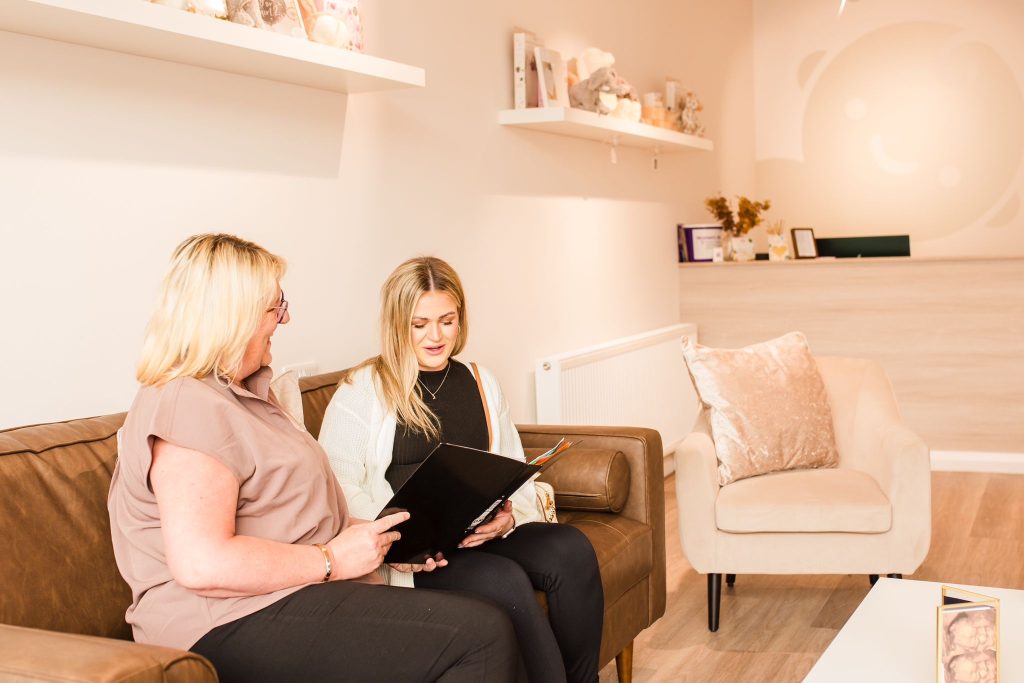Why Should I test?
This test measures the amount of a protein called CA-125 (cancer antigen 125) in your blood. High levels of CA125 tumour markers in your blood may be a sign of ovarian cancer.
Test information
This test is used:
- To see if ovarian cancer treatment is working and to check for ovarian cancer that has come back.
- To learn more about a growth or lump in your pelvis
- To screen for ovarian cancer if your risk is very high.
It is important to note that this test is not a diagnosis and further investigation may be required by your health care provider.
Our Phlebotomy trained professional will take a blood sample from a vein in your arm, using a small needle. This sample will be tested by our authorised partners, TDL. Results from your blood tests can be expected between 5 – 7 working days after the lab receives the sample
Oh Baby LTD will not review your blood test results – we recommend you discuss these results with your healthcare provider or GP. Dependent on the results of your blood test, you may require further testing with a healthcare professional.
Ovarian Cancer Risk Blood Test
What to expect:
- Screen for ovarian cancer risk
- Measures CA-125 levels in blood.
- Used for treatment monitoring, investigating pelvic growths/lumps, and high-risk screening.
Frequently Asked Questions
Please attend our intimate clinic in Ballymena, Oh Baby Ultrasound, 89 Broughshane Street, BT436ED. You should attend your appointment at the correct time. When you attend clinic please wait in the waiting area until a team member calls you in for your appointment.
Your blood test appointment is booked for 20 minutes in order for our phlebotomist to be able to talk you through the process and make you feel comfortable.
Please ensure you are well hydrated as well as warm and comfortable this will help with drawing the blood required for your sample. We recommend you wear loose fitting/easily removed upper clothing as this will ensure the process of taking your blood sample is seamless and efficient.
Our blood samples are taken by our qualified Phlebotomist. Although this isn’t necessary, we want you to feel as at ease and comfortable as possible during the procedure.
No, your blood sample will be taken by our Phlebotomy specialist and sent the same day to our authorised partner, TDL, who analyse your blood and provide us with the results. We will share these results with you either by email or by telephone the same day we receive the results back. Results can be expected 5-7 working days from the lab receive the results.
Bruising around the puncture site is completely normal and it can sometimes extend depending on each individual. If you are concerned about bruising/in pain after one week of the blood sample being taken contact your local practice nurse/GP.
Sometimes it is difficult to draw a blood sample due to numerous outside factors, including but not limited to not being hydrated, feeling cold or having a separate blood test prior. If we, for whatever reason, can not obtain the blood required for the sample we will offer another appointment in attempt to obtain the necessary millilitres of blood required.
We will share these results with you either by email or by telephone the same day we receive the results back.
Having a blood test should not cause any significant side effects as only a small amount of blood is taken. However, some people may feel faint or dizzy at the time of the blood draw or experience mild bruising at the blood taking site, which should resolve on its own. If you have ever experienced any side-effects with having blood taken in the past, please let our staff know so they can help support you. We will offer you some juice and biscuits after your sample has been taken.
We can only offer blood tests to those over the age of 18 with no age limit.
Many people feel like this and it is nothing to be ashamed of. Tell the member of staff who is taking your blood test – this will help them to look after you better.
You could also ask someone to come with you and distract you during the test. Some people also find breathing for relaxation helpful. If the problem is that you faint at the sight of blood, this is caused by a fall in blood pressure: you can learn techniques to stop this from happening.











